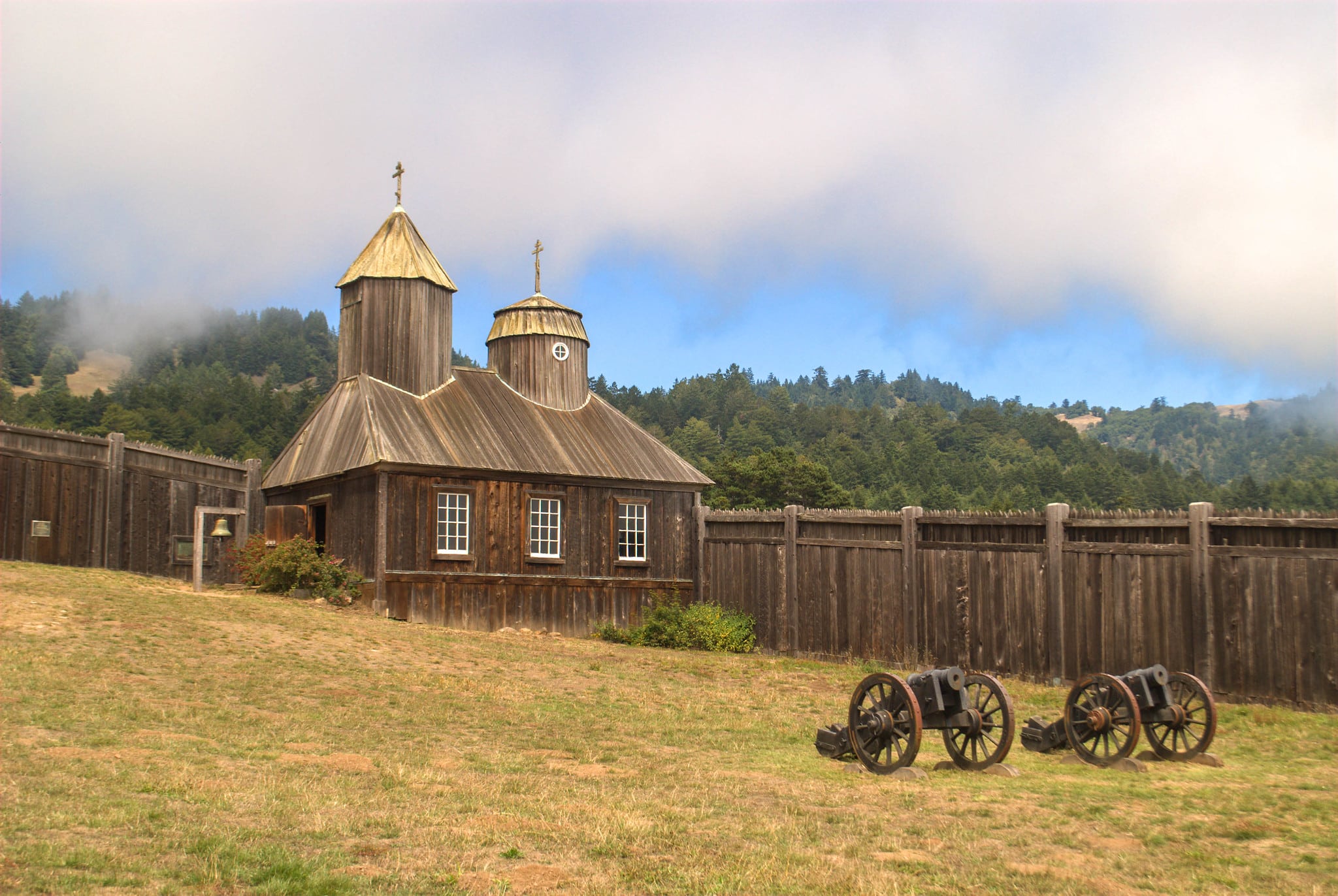Fort Ross State Historic Park is a Russian imperial-era settlement located in what is now Sonoma County, California, about two hours north of San Francisco. It is one of the most striking examples of Russia’s history in North America, particularly in the territories now within the United States.
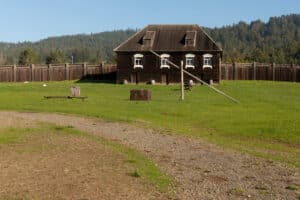
A bold attempt at establishing a greater Russian presence along the North American West Coast, Fort Ross (from the Russian “rus,” which is the same root as “Russia”) was an extension of the settlements founded by the Russian-American Company in Alaska and along the modern-day Pacific coastline of Canada. It was founded primarily to supply food to the Russian colonists in Alaska. Additionally, sea otters were hunted for the Russian pelt trade.
However, when fort was built in 1812, the sea otters were already being over-hunted by the Americans, British, and Spaniards in the area. By 1817 the populations were critical. Although the fort could also provide processed flour from its windmills and ships built with California lumber, a deal struck with the Hudson Bay Company in Canada provided a more efficient way of supplying Alaska with food in 1938.
In addition, the Mexicans were making territorial claims pushing northward and Americans eastward, increasing the geopolitical risks the fort and colony faced. The fort was abandoned and sold to John Sutter, a Swiss-born Mexican and American citizen, in 1841. Sutter used it to support his lumber colonies in the area. Sutter’s colonies would, in 1848, further discover gold in the area, sparking the California Gold Rush.
After being held in private ownership in the decades that followed, in 1906, Fort Ross was bought by the State of California. Over the course of several decades, the fort and surrounding area were restored, with many buildings rebuilt. It first was opened as a museum in 1974.
Today, the 3,400-acre waterfront settlement remains a notable historic attraction in Northern California and a key example of Russia’s former footprint in the United States. It features a visitor center, picnic areas, and a handicap-accessible trail to the fort compound.
The fort compound is now maintained as part of Fort Ross State Historic Park by the Californian government. It is registered as a California Historic Landmark, National Historic Landmark, and registered on the National Register of Historic Places. Much of the activity and management of the facility is handled through Fort Ross Conservancy, a charitable organization that works with the Parks Service.
In the past, the facility has held Russian-themed cultural events such as the Fort Ross Festival. However, in recent years, the facility has increasingly focused on its other goals of environmental conservancy and providing outdoor recreational activities. Perhaps the biggest change to Fort Ross’ activities has been the discontinuation of the once annual Fort Ross Dialogue, which brought together scholars from Russia and America to work together on issues such as environmental policy, museum technology and managment, and historical research. The Dialogue was last held in December, 2022. The Festival was last held in 2020.
You Might Also Like

Museum of Russian Poetry in Rockville, Md.
The Museum of Russian Poetry, located in Rockville, MD., just outside of Washington, DC, holds an impressive collection of Russian and Soviet literary artifacts. This small, private museum The small, niche space is packed from wall to wall with artifacts celebrating Silver Age masters like Boris Pasternak, Marina Tsvetaeva, Osip Mandelshtam, Anna Akhmatova and Nikolai […]
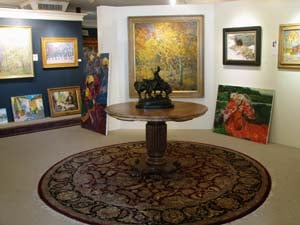
Gallery Russia in Scottsdale, AZ
The catalyst for what is now Gallery Russia in Scottsdale, Ariz., came at a pivotal time in 1992. Father and son co-owners Scott and Paul Eubanks say that after the collapse of the Soviet Union, Westerners were more curious than ever to learn about their Cold War rival — creating an opportunity to explore that […]
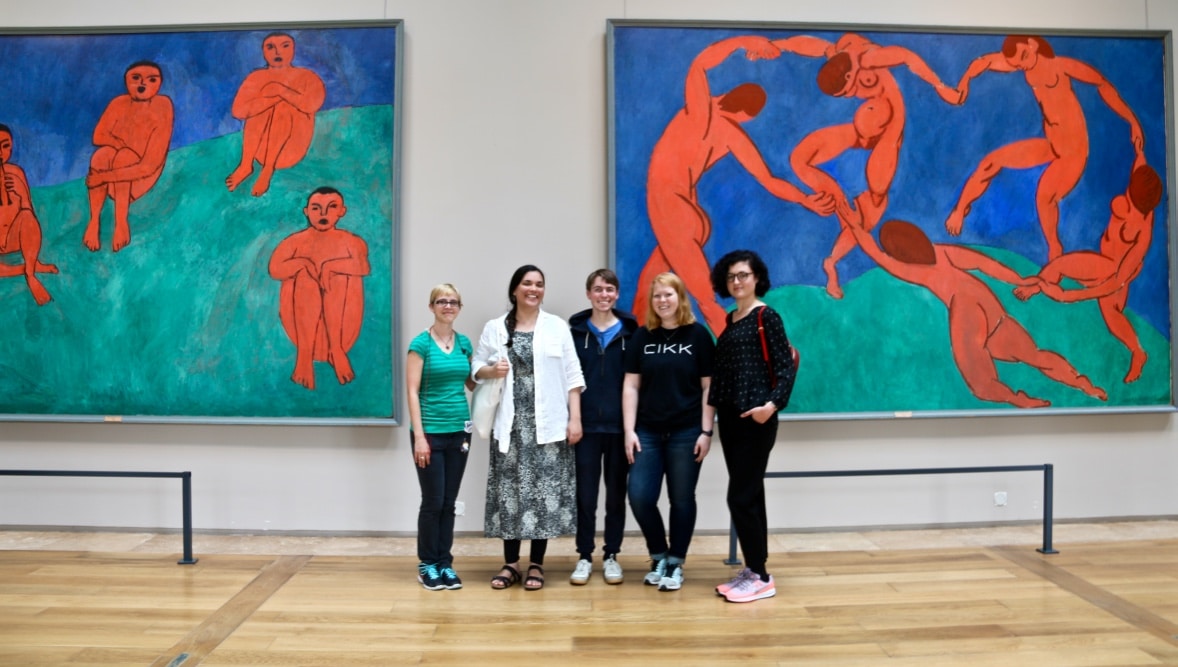
Museums as Self-Care
In 2018, doctors in Montreal began prescribing visits to the Montreal Museum of Fine Arts (MMFA) for patients experiencing depression, anxiety, and other health issues. This innovative approach to mental health treatment was launched under the initiative of the MMFA in collaboration with Médecins francophones du Canada (MFdC). The program allows physicians to provide patients […]
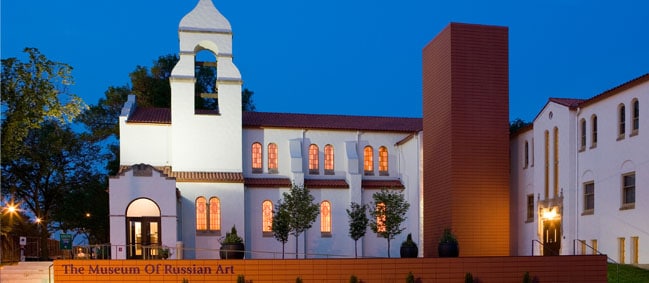
The Museum of Russian Art in Minneapolis, MN
The Museum of Russian Art in Minneapolis, Minnesota showcases a wide range of Russian Art, extending from print-making artifacts to 20th century painting and photography. Though The Museum of Russian Art originally focused on 19th and 20thcentury Russian artwork, the collection has expanded since its inception to encompass an extensive array of Russian artwork including […]
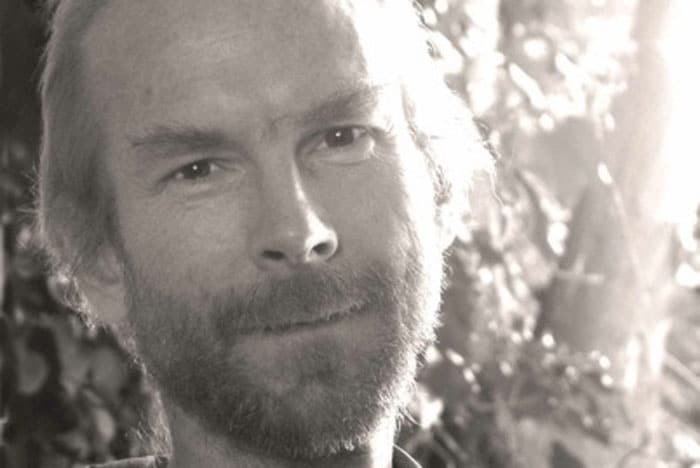
Robert Chandler: Translation as a Career and a Love
Robert Chandler graduated with a BA in Russian and English Literature from Leeds University. His translations from Russian include Vasily Grossman’s Life and Fate and Everything Flows, Leskov’s Lady Macbeth of Mtsensk and Aleksander Pushkin’s The Captain’s Daughter. His co-translations of Andrey Platonov have won prizes both in the UK and in the USA. His translation of Hamid Ismailov’s The Railway […]


